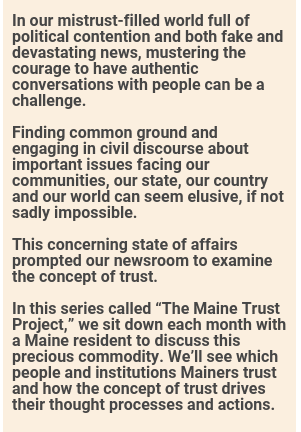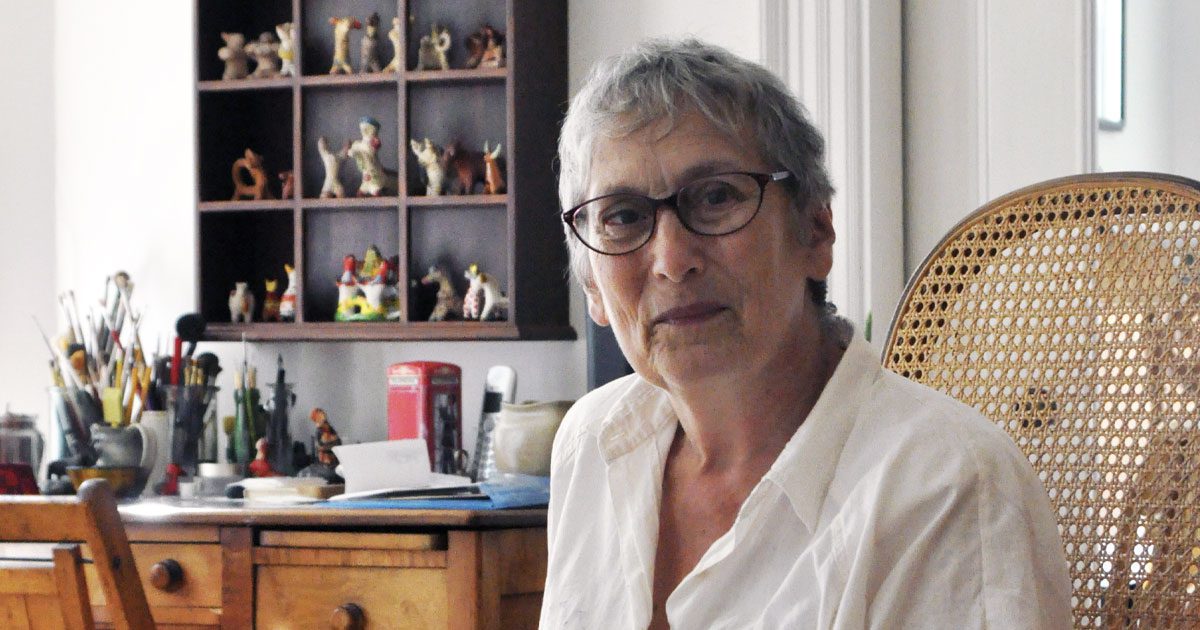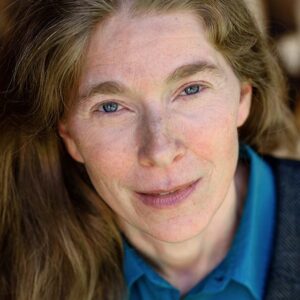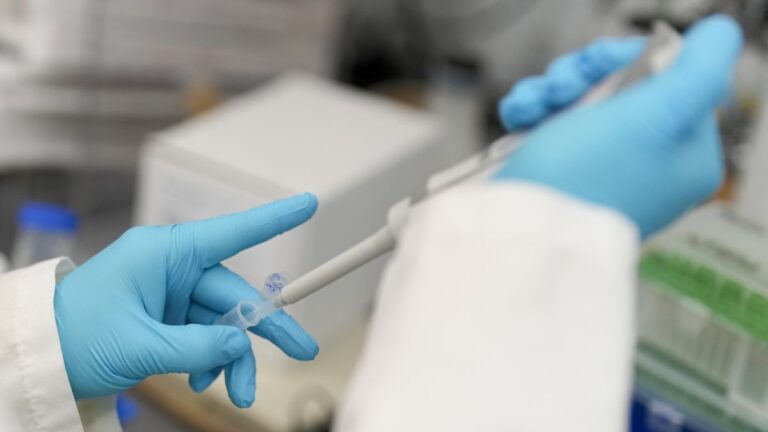Inna Bezborodko is quick to point out that while she studied psychiatry in what was then the Soviet Union, she was a psychologist, not a psychiatrist. It’s a distinction that may be lost on Americans who aren’t familiar with Russian history. For many years, the Soviet government used the psychiatric system to neutralize those who voiced their opposition to the government by diagnosing them with mental illnesses, particularly schizophrenia.
“In Russia, I saw people abused by psychiatry,” she said from the Rockland office where she counsels clients today. One of those abused people was a friend of hers, a young man who “was not even a big-time dissident,” but whose father was a colonel. His father put him in the hospital where he was “diagnosed” with schizophrenia. “His life was broken,” she said.
 She had been living the “ivory-tower” life of an academic, but once she was exposed to the realities of the psychiatric system, “I could not look at life the way I looked before,” she said. She tried to do meaningful work while staying under the radar. “I opted not to attract attention to myself.”
She had been living the “ivory-tower” life of an academic, but once she was exposed to the realities of the psychiatric system, “I could not look at life the way I looked before,” she said. She tried to do meaningful work while staying under the radar. “I opted not to attract attention to myself.”
Inna knew what attracting attention could lead to. She had minor troubles herself as a young adult, and had seen others, like her friend, suffer the consequences. But, more than that, she was the daughter of a man who had, at age 19, been labeled an “enemy of the people” without cause. He was tortured in order to try to force a “confession” from him. “The first lesson I learned very early in life from my father was do not rat on people — it may cost them their lives,” Inna said.
Her father survived the torture, never signed a confession (there was nothing to confess, and he refused to just name anyone), and was, miraculously, released to continue his university studies and fight in World War II. After the war, though, he was sent into exile until 1957, when he — a radio-physicist — was enlisted to help with the Soviet space program.
Others were not so “lucky.” Stalin’s purges targeted all segments of Russian society. While the official number of those killed is just over 1.5 million, some historians argue that actual numbers are in the tens of millions of people who were killed outright or sent to prison camps where many died from harsh conditions.
Twenty years after being tortured, Inna said, her father learned that a classmate of his had named him and other innocent people in order to stop his own torture. Her father’s accuser was executed after his “confession.”
In the end, Inna could not stay silent about what she knew was being done to people in the psychiatric system. As the Soviet Union began loosening up in the late 1980s, she had an opportunity to learn how human rights for mentally ill people were implemented in democractic countries.
Making a film about human rights for mentally ill people was what first brought her to the United States in 1989, and to Maine, where she made connections with people at what was then known as the Bangor Mental Health Institution (now called the Dorothea Dix Psychiatric Center), where the documentary was filmed.
While wrapping up filming in Maine, she learned her country was in the midst of coming apart at the seams. Despite the political upheaval and food shortages, she returned to her home, where she completed her film, which was broadcast there, and to her gratification, made some impact on the conditions in mental health institutions.
She returned to Maine in 1992 to present her film at BMHI. While here, she learned that a couple of her friends in Russia had been killed. The political and social upheaval had steadily been worsening since the summer of 1991, when a coup brought tanks to the streets of Moscow. The coup failed, but the possibility of civil war had everyone on edge. Her friends urged her not to return.
It was hard to contemplate not returning to her home. Her life may have been in danger, but she was loath to give up her hard-fought, meaningful, and successful work and start from scratch in a new country. That’s what she chose to do, though, mainly for the sake of her two young daughters.
Initially, she had no home to go to in Maine and no job to support herself. Mainers such as Elizabeth Markovsky, Helen and James Wofhagen, and Nancy Beckett not only sheltered her, she said, but became family. When she was able to begin working, she put in 16-hour days, taking no time off, and often only got four hours of sleep a night.
Those early years in Maine were grueling, but it was also a time when Inna experienced a profound level of trust, she said. “I want to tell how grateful I am to people who trusted me, a complete stranger, with their homes and money when I was homeless; who believed in me when I did not believe in myself; who loved me out of the goodness of their hearts,” she said.
Through their trust and faith in her, she learned how to love unconditionally and trust in life, she said. “May their names never be forgotten.”
Q&A
Who meets your definition of trust?
Inna: I trust people. I have lived in extreme conditions, and extreme conditions bring out the best and the worst in people. When I was thinking about these trust questions, I wondered if what happened to the Japanese in America during World War II were to happen tomorrow with Russians here, how would my neighbors react? How would strangers react? In Russia during Stalin’s purges and during the war when Jews were persecuted, sometimes people were giving their spouses to the Gestapo. On the other hand, sometimes complete strangers would take people and hide them, risking their own families. You never know about people. But I trust in the best of people. I trust people because I deeply believe that if it does not take too much effort for people, they prefer to be good. We always have choices, and we can make the choice to remain human even in non-human situations.
Who doesn’t meet your definition of trust?
Inna: Institutions. For example, health insurance companies. They are completely immoral. I’m not afraid to say it aloud. I work in the healthcare system. With big corporations controlling the system, it’s amoral what is going on. The heroic efforts of overworked healthcare providers keep the system going, but it is a broken system. The cost of treatment is insane. Recently, a person I knew who couldn’t afford health insurance didn’t go to the doctor. When he did finally go, he found out he had stage IV cancer. He was able to qualify for assistance, but didn’t live long enough to get the treatment. Everybody should have healthcare. It’s not socialism. If society wants to be functional, we need to invest in health and education. If you don’t, you go downhill.
What breaks trust for you?
Inna: Meanness, for instance, when a person learns something from you, and then uses that to hurt you. Also, using people, deliberate cruelty, and abuse of power.
Can broken trust be healed and if so, what has to happen for healing to take place?
Inna: Yes. In my work, I have helped couples heal broken trust, and in my personal life, I have experienced healed trust. It starts with understanding and compassion. It also helps when a person asks for forgiveness. To me, the Christian aspect of forgiveness is understanding, accepting, and keep loving people the way they are, even knowing that they are capable of betraying you for 30 silver coins.
Has your definition of trust changed over the years?
Inna: It has changed. When unpleasant things happen, at first, I’m upset. I may be angry. But then I remember how many times I was not perfect. I understand, now, that sometimes you can trust people in some respects, but not in others, and that’s OK. I don’t throw people away, maybe because I’m older now and I don’t have that many contemporaries left. You have to accept and love people the way they are.
Has the cultural definition of trust changed over the years?
Inna: That’s an interesting question. I did not grow up with this culture, but I believe that I’m 100% American because I came here with nothing and worked my way. But I think that, yes, it has changed. When I first started seeing white Americans on the streets of St. Petersburg, you know what impressed me? Their posture. They walked with this confidence. Some of them have complexes. Some are insecure. People are people. But they had this confidence of this huge, powerful country which — how do you say? — had their backs.
In Russia, we’re born with the presumption of guilt. You’re guilty until you’re proven not guilty. We had a constitution, but you could be arrested. A policeman could kick you with his feet in your stomach, take your money. The law is always against you. So, you don’t trust. And you don’t think about not trusting. You just live with it. But in America, until recently, there was this unfounded trust in social institutions because this is a country that respects the law. Corruption happens in many countries, but in America, people believed that the law would deal with that. But these last two years, everything is allowed now. It’s a violation of trust. Today — look at people’s tense faces — it’s changing.
What worries you?
Inna: Not too many things worry me because lately I have learned to live in the moment. This is especially important when you are getting older. Death is not something I’m particularly afraid of. I’ve faced it a few times in my life. But loss of independence, being a burden on my children and on society — that does worry me. And on a bigger scale, what is going on now politically — I firmly believe it will not last. History shows that anything that is built on lies, on hate, it will not last. But what worries me is before it falls, it will take a lot of us with it.
What inspires you?
Inna: Art, nature, people’s kindness, but also new developments in science and medicine. I think we’ll become less dependent on pharmaceuticals. We’re already seeing that in new medical approaches. I’m more skeptical of gene therapy because there are too many factors we don’t know yet. But using the resources of your own body and the mind-body connection to gain back health? I think this will be a common practice soon.
What issues do you think are important today?
Inna: Healthcare for all. That’s extremely important. And I want accountability. I want the law to work.
Get to know Inna Bezborodko
Hometown: Rockland
Religious affiliation: I grew up an atheist, but I am a Christian. I’m not a church-going Christian, so organized religion is not a part of my life, but the spiritual part of being a Christian is.
Political affiliation: I am registered to vote for Democrats. I don’t like them, to tell you the truth, but they are better than Republicans. I think the Democrats fighting among each other is not wise because it lets people like Donald Trump come up.
How she describes herself: It is hard to be serious, speaking about myself. I think I’m a person who thinks that life is sometimes difficult but always very interesting and often funny. Besides my daughters, the most important things for me have always been freedom and being true to myself. I love what my life has become, and I trust in my ability to deal with life as it unfolds.
How she defines trust: From Webster’s Dictionary. When English is your second language, Webster’s Dictionary is very helpful. So, I agree with Webster’s: Trust is a strong, firm belief in reliability, in truth, in an idea, in something or somebody.







